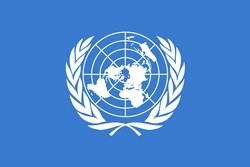The new implications of transnational actors in global governance
The growing rate at which international institutions offer mechanisms for the participation of TNAs is one of the most profound trends in global governance over the past two decades. DII (The design of international institutions: Legitimacy, effectiveness and distribution in global governance) studied the causes and effects of this shift in the design of international institutions. The EU-funded project explored the causes of this transnational turn in global governance and its role in the effectiveness of problem solving, democratic legitimacy and distributional outcomes of IOs. Researchers combined statistical analyses and case studies in order to comparatively assess TNAs in over 50 IOs, producing interesting results for academics and practitioners. Results show that IOs gradually become more open to TNAs. Compared to 1950, the institutional rules for the inclusion of TNAs in IOs were four times more generous in 2010. IOs are considerable more susceptible to change than conventionally expected. The growth in IOs' openness to TNAs can be explained by two central factors. First is a growing cooperation in areas where TNAs can propose services, such as offering aid to local populations or collecting information on violations of human rights, that IOs need and are less well adapted to perform themselves. The second factor is domestic democracy in the membership of IOs, pushing member governments to adopt democratic principles of governance at the global level. Project outcomes also show that TNAs exploit these opportunities in an uneven way. Northern, western and for-profit TNAs are overrepresented, which indicates that resources are important for TNAs to take advantage of greater access opportunities in global governance. Other results indicate a greater influence of TNAs relying on the provision of expertise, compared to those mobilizing public opinion, which links TNAs to interest groups at the domestic level. TNAs being involved in global policymaking doesn't render IOs more legitimate, neither for the public nor TNAs themselves. Finally, it's important to take into account the distributional fairness of policymaking while assessing the legitimacy of IOs. The project contributed to the existing literature on international institutional design, TNAs in global governance and democracy beyond the nation state. It also opened up a new research agenda on the design of IOs through an ambitious combination of novel theory development and comparative empirical research.







